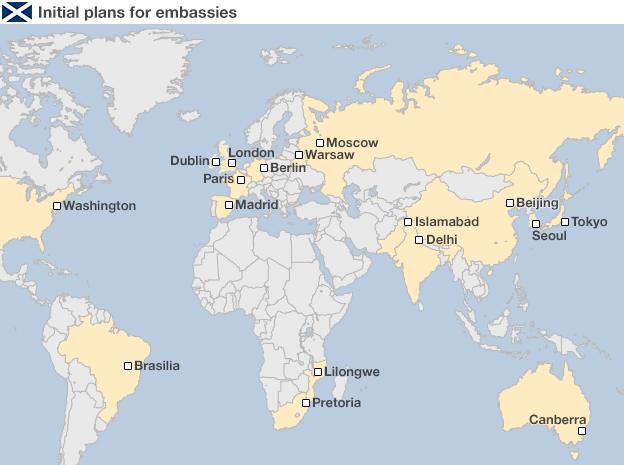White Paper: International relations and defence
- Published
BBC Scotland's Steven Godden analyses that part of the White Paper that looks at international policy, international development and defence. Some measures relate to negotiations leading to a settlement with the rest of the UK. Others would be policies of the Scottish Government if the SNP wins the Holyrood election in 2016.
An independent Scotland would be members of the United Nations, NATO, the Council of Europe, the Commonwealth, the OECD, and the OSCE.
It would also seek a closer relationship with the Nordic Council of Ministers.
A network of overseas embassies would be established in locations including Beijing, Islamabad, Seoul and Washington.
Initially, there would be 70 to 90 overseas offices with an estimated running cost of between £90 million and £120 million.
On international development, an independent Scotland would legally commit to spending 0.7% of Gross National Income on international aid with an aspiration to spend 1% over time.
Also, international development policy would aim to ensure Scottish Exports don't result in "unjust debts", show a commitment to gender equality and policies that do no harm to developing countries.
There is a commitment in the White Paper to removing Trident by 2020.
A Scottish Defence Force would consist of 15,000 full time personnel and 5,000 reservists.
Faslane would be retained as a conventional naval base and joint HQ of a Scottish defence force.
